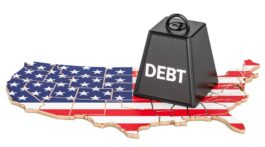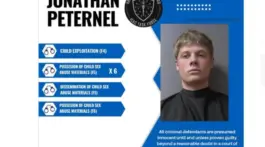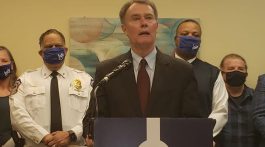by Abdul-Hakim Shabazz
A few years ago my wife was involved in a major car accident and she was prescribed opioids to help her deal with the pain. Luckily, after years of being married to me, she knew how to deal with pain and instead sought alternative remedies because she did not want to take the risk of developing an addiction.
I bring this up because the city of Indianapolis is taking the nation’s opioid manufacturers and distributors to court and frankly, I don’t blame them.
Citing statistics showing that 345 Marion County residents died last year (more than traffic accidents) due to opioid addiction, not the mention the increased costs on public safety, the court system and social services, the city decided it was time to hold these guys accountable. And before you think this is just an Indianapolis issue, the Indy Star recently reported the number of people addicted to opioids has increased by 500 percent since 1999.
Indianapolis is not alone in pursuing litigation. The Washington Post reported this past summer that 25 states, city and counties are taking the opioid manufacturers, distributors and large drugstore chains to court arguing they were negligent in how they allowed their products to be consumed. And they are having some big wins.
In January, the McKesson Corporation, one of the nation’s largest distributors of pharmaceuticals, paid a $150 million civil penalty for violations of the Controlled Substances Act. McKesson was failing to report “suspicious orders” for oxycodone and hydrocodone, such as orders that were suspicious in frequency, size, or other patterns.
That same month, Costco Wholesale reached an $11.75 million settlement to resolve allegations that its pharmacies violated the Controlled Substances Act when they improperly filled prescriptions for controlled substances.
In April, Mallinckrodt Plc, a manufacturer of oxycodone, agreed to pay $35 million to resolve U.S. investigations into its monitoring and reporting of suspicious orders of controlled substances.
The list goes on and on. So far this year, drug companies and distributors have shelled out at least $220 million in settlements regarding opioids. You only settle as a defendant when it’s cheaper than going to court.
Now some have questioned the motives behind the city’s litigation. It’s been accused of simply trying to get “free money”. Others have said the true culprits in all this are the people addicted to opioids and if they can sue, why shouldn’t the obese person be able to sue the fast food restaurant or the alcoholic be able to sue the liquor industry. And then there’s the other school of thought that said these drugs were approved by the Food and Drug Administration, so the drug companies and distributors can’t be held liable.
I remember the same arguments being made as a young staffer working for the Illinois Attorney General during the mid-1990s in the days of the tobacco industry lawsuits. The same people said there was no way that tobacco companies could be on the hook for someone who made the decision to smoke. Nearly $206 billion later, these folks would be proven wrong.
So how could the drug companies and distributors be on the hook? Well in one instance in Colorado, the Justice Department reported McKesson had processed more than 1.6 million orders for controlled substances from June 2008 through May 2013, but reported just 16 orders as suspicious, all connected to one instance related to a recently terminated customer.
In West Virginia, the Charleston Gazette-Mail reported one drug company and other wholesalers in a six-year period sent 780 million hydrocodone and oxycodone pills to West Virginia, which amount to 433 pills for each state resident. During that same time, there were 1,728 fatal overdoses from the addictive painkillers; ponder that for a moment.
Like I said earlier, the list goes on and on. And if you’re still not convinced the city is doing the right thing by going after the drug companies and distributors then you must also be in favor of repealing laws that hold bars accountable if they over-serve someone and that person gets behind the wheel and kills your loved one.
I didn’t think so.
Abdul-Hakim is the editor and publisher of IndyPolitics.Org. His opinions are his own, but you are free to adopt them.
Photo: Shutterstock














